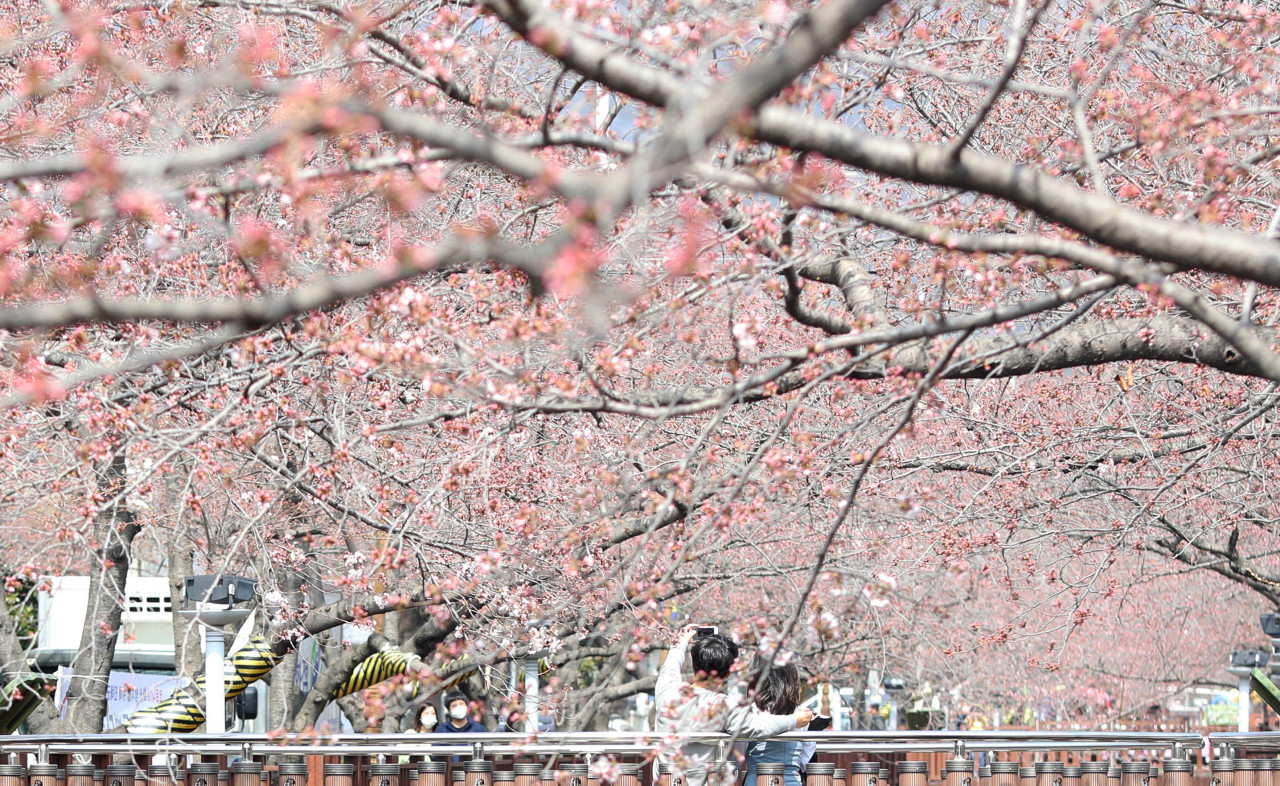
Entrances to Yeojwacheon Stream at Jinhae, South Gyeongsang Province, have been shut down from Monday. Visitors wearing masks take photos at the stream on Sunday. (Yonhap)
SEOUL — Though spring flowers are in full bloom, local authorities are requesting that people refrain from visiting flower sightseeing spots, due to fears about the spread of COVID-19.
Amid the health crisis, most festivals across the nation have been called off. However, it has been difficult to turn away visitors at areas where spring flower festivals are usually held.
Though the events have been canceled, some are still showing up to view the flowers.
Earlier this month, the southeastern city of Changwon in South Gyeongsang Province canceled its Jinhae Cherry Blossom Festival for the first time in the event’s nearly 60-year history.
According to Changwon City, people continue to visit the city. As a result, the city has blocked entrances to cherry blossom sightseeing spots.
“We have shut down Gyeonghwa Station and 11 entrances to the spot, blocking out visitors,” Mayor Huh Sung-moo announced Monday.
Gyeonghwa Station, a defunct train station, is famed for its tunnel of cherry blossom trees. The city has also shut down entrances to Yeojwacheon Stream, a well-known spot to view cherry blossoms.
“We promise to prepare well for next year’s festival, so please refrain from visiting Changwon this year,” the mayor said.
Similar incidents happened in other areas that usually host spring flower festivals.
Earlier this month, the county of Gurye, South Jeolla Province, canceled its annual Gurye Sansuyu Festival featuring Cornelian cherry flowers, but visitors continued to flow in.
On Monday, four people who had visited Gurye were confirmed with COVID-19. The county shut down restaurants and stores that the four had visited, and 16 locals who had contact with the visitors were tested for COVID-19. They all tested negative.
Meanwhile, a district in Ulsan has been embroiled in controversy for continuing with its plans for a cherry blossom festival. The third edition of the Yaksa Cherry Blossom Festival is to take place from Friday to April 5. Other festivals organized in the city of Ulsan have all been canceled.
The event’s organizers canceled performances, activities and food stations but have continued installing decorative lights. The district has spent 2 million won ($1,594) installing light displays on a 170-meter-long road with 40 cherry blossom trees.
The head of the district acknowledged that most spring festivals have been canceled due to “social distancing” measures, but said visitors can individually enjoy viewing the cherry blossom trees and light displays.